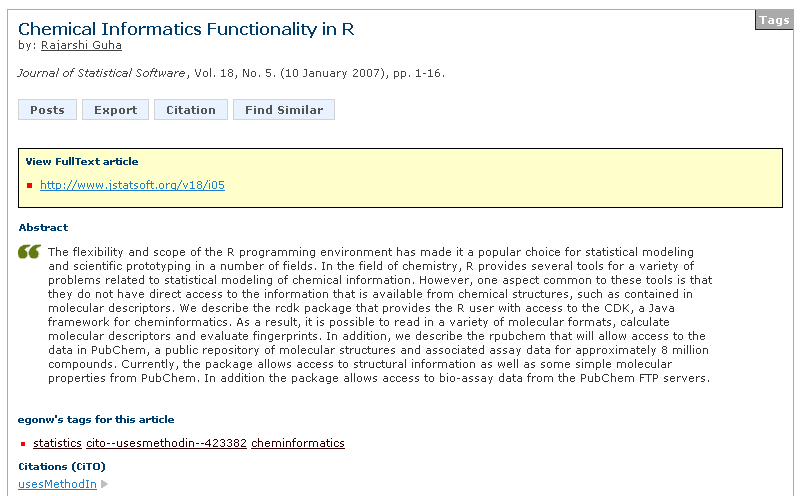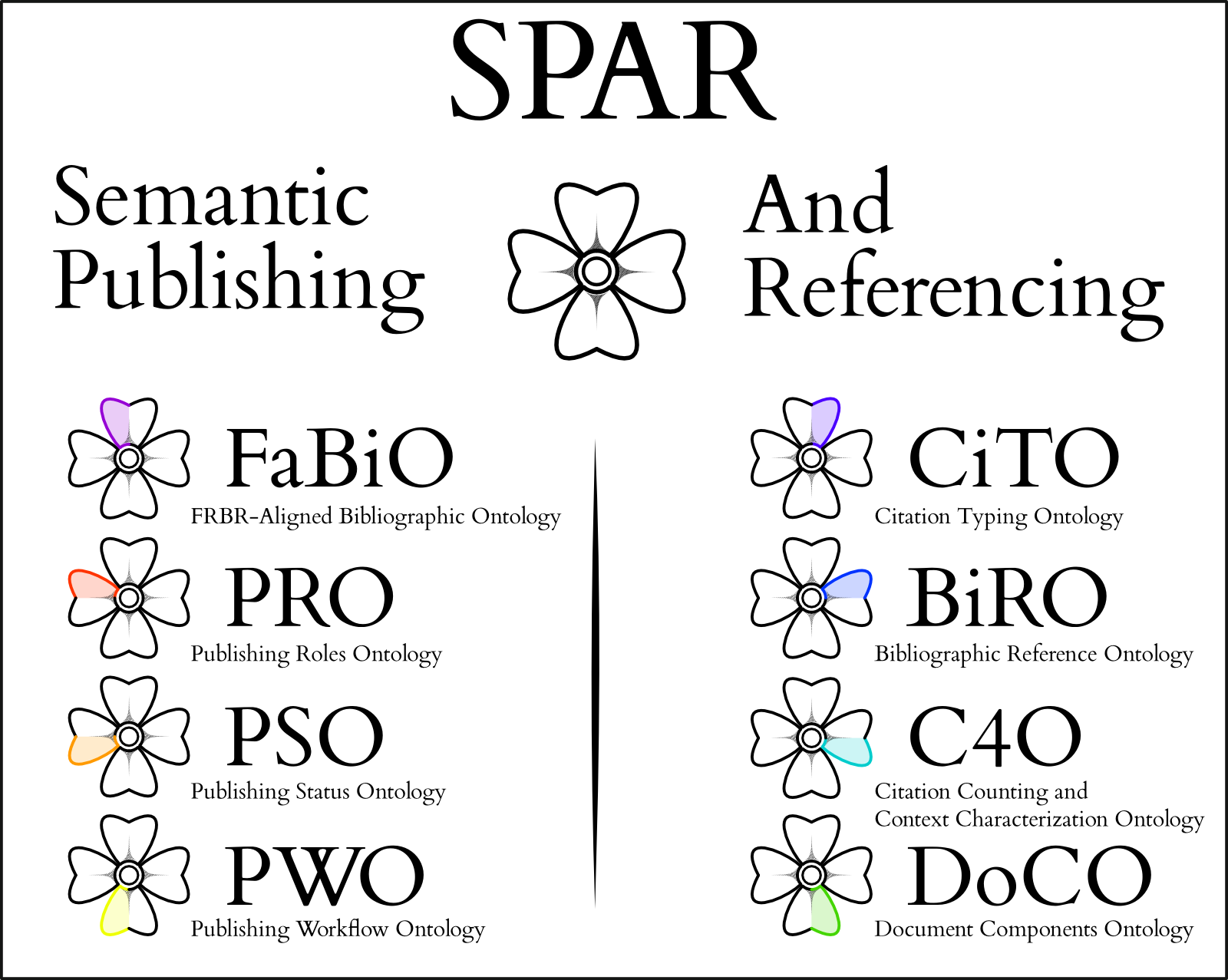
Jodi Schneider of DERI has posted on her blog at http://jodischneider.com/blog/2010/10/18/cito-in-the-wild/ a most helpful description of how to employ CiTO properties characterizing bibliographic citations as tags for references in CiteULike. Thanks, Jodi!

